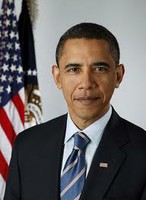
NEW BRUNSWICK, N.J – With just over three months until the New Jersey primary and nine months from the presidential election, New Jersey Republicans continue to prefer former Massachusetts Gov. Mitt Romney as their standard-bearer in the battle against President Barack Obama. But Romney has yet to solidify his support here, according to a new Rutgers-Eagleton Poll.
While about a third (36 percent) of GOP voters and “leaners” favor Romney, former U.S. senator, Pennsylvanian Rick Santorum has risen to second at 19 percent. The two are followed by former U.S. House Speaker Newt Gingrich and Texas Representative Ron Paul, each of whom claims support from 11 percent of Republicans. Another 14 percent say they would prefer “someone else” not in the field or none of the choices, and 8 percent are unsure.
“Romney has yet to break 40 percent here, reflecting the continued uncertainty about him among Republicans,” said poll Director David Redlawsk, a professor of political science at Rutgers University. “As in other states, we have seen Santorum rise from nearly nothing to become a contender. But for the moment Romney remains well out front in the GOP field.”
Jobs and the economy are the most important issues in their choice for president among a majority of respondents, Redlawsk observed. At the same time, most want a strong leader, someone who shares their values and “cares about people like them.” These desired characteristics aside, a majority also wants a president who will compromise.
In a general election matchup, Obama would beat Romney in New Jersey by 25 percentage points, 56 percent to 31 percent. He led Romney by 19 points in December. “As the president’s favorability ratings and job performance grade improve, he has also improved his electoral position,” noted Redlawsk. “While New Jersey isn’t necessarily in the bag for the president, he has certainly pulled ahead in this traditionally blue state.”
Results are from a poll of 914 registered voters conducted statewide among both landline and cell phone households from Feb. 9-11. The full sample has a margin of error of +/- 3.3 percentage points. While New Jerseyans must be registered in a political party to vote in its primary, an independent voter can declare party affiliation at the polls and vote. Thus, the sample includes a subsample of 289 Republicans and Republican-leaning independents, with a margin of error of +/- 5.9 percentage points.
Courtesy Poco a Poco Republicans support Romney, but many are not satisfied with choices
As the election draws closer, only 8 percent of registered Republican and Republican-leaning voters say they do not know who to pick, although another 14 percent wish they had another choice. Among the remaining contenders, 36 percent prefer Romney, up from 28 percent in an open-ended question in December. The race remains fluid, however, as Romney stays below 40 percent, Redlawsk said. He added that Santorum is the most recent beneficiary of the unsettled race. The former senator was named by only 1 percent of GOP voters in December, but now gets 19 percent, and has supplanted Gingrich as New Jersey’s second choice.
That the race remains up in the air is reflected in the fact that only 11 percent of Republicans are “very satisfied” with the candidates, while another 57 percent are “somewhat satisfied,” Redlawsk said. Nearly a third says they are not satisfied, but this an improvement since last August, when only 3 percent were very satisfied with their choices for the nomination.
Conservatives are more satisfied than moderates: 82 percent are at least somewhat satisfied with the field, although only 19 percent are very satisfied. On the other hand, 5 percent of moderates report being very satisfied and 56 percent are somewhat satisfied with the choices available to them.
“The overall picture here seems to be somewhat grudging support for Romney that has grown slowly over time,” said Redlawsk. “But he has always had one or another pesky challenger nipping at his heels here, and now that’s Santorum. If Santorum continues to rise nationally, he could be a real threat to Romney in New Jersey.”
The economy is the issue but voters eye personal characteristics as well
Sixty percent of voters say the “economy and jobs” is the most important issue when deciding on a presidential candidate. Republicans (64 percent), Democrats (58 percent) and independents (60 percent) all agree.
Across all voters, health care is a very distant second, named by 12 percent of voters, followed by education (9 percent) and the federal budget deficit (8 percent). However, Republicans (11 percent) and independents (10 percent) put the budget deficit second, while Democrats name health care and education (15 percent and 14 percent, respectively) after the economy.
“There is wide agreement that the economy is the most important issue for voters and nothing else comes close,” said Redlawsk.

Leadership is the most prized candidate quality, according to 28 percent of all registered voters. “Shares my values” and “cares about me” are next at 20 percent and 19 percent, respectively. Republicans are especially focused on leadership (43 percent) and shared values (18 percent). The spread is closer among Democrats: caring (25 percent) edges leadership (24 percent) and shared values (21 percent).
Voters also favor flexibility in the White House. Almost two-thirds want a president who will compromise to complete an agenda while the remainder prefers a leader who sticks to his beliefs. Seventy percent of independents wish for a compromiser but fewer partisans (62 percent of Democrats, 59 percent of Republicans) are enamored of this trait.
Obama extends lead over Romney
Since December’s Rutgers-Eagleton Poll, Obama has added six percentage points to his 19-point lead over Romney and would now beat the Garden State GOP frontrunner, 56 percent to 31 percent. The president leads among independents, 49 percent to 34 percent, while 90 percent of Democrats say they would stick by the president. Republicans are not quite as united for Romney: 78 percent say they would vote for him.
As for personal traits, Romney wins among voters who want a strong leader, 47 percent to 43 percent. Obama, however, easily wins among those looking for shared values (60 percent to 26 percent) and a caring leader (75 percent to 17 percent).
“Part of Obama’s advantage right now is the contentious Republican race,” said Redlawsk. “Once a nominee is chosen, Republicans are likely to rally around him. Still, with many more Democrats than Republicans in New Jersey, any Republican nominee has to do better among unaffiliated voters than we are seeing now.”
Media Contact: David Redlawsk
732-932-9384, ext. 285
E-mail: redlawsk@rutgers.edu


